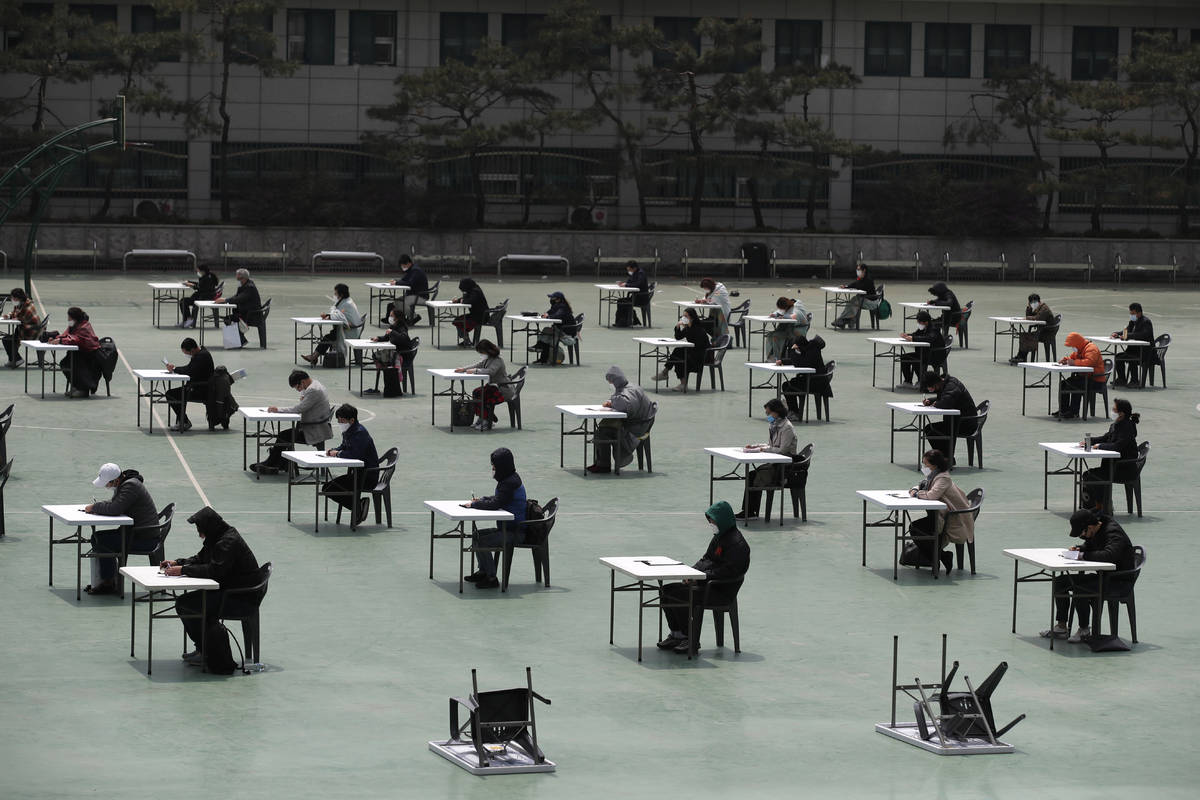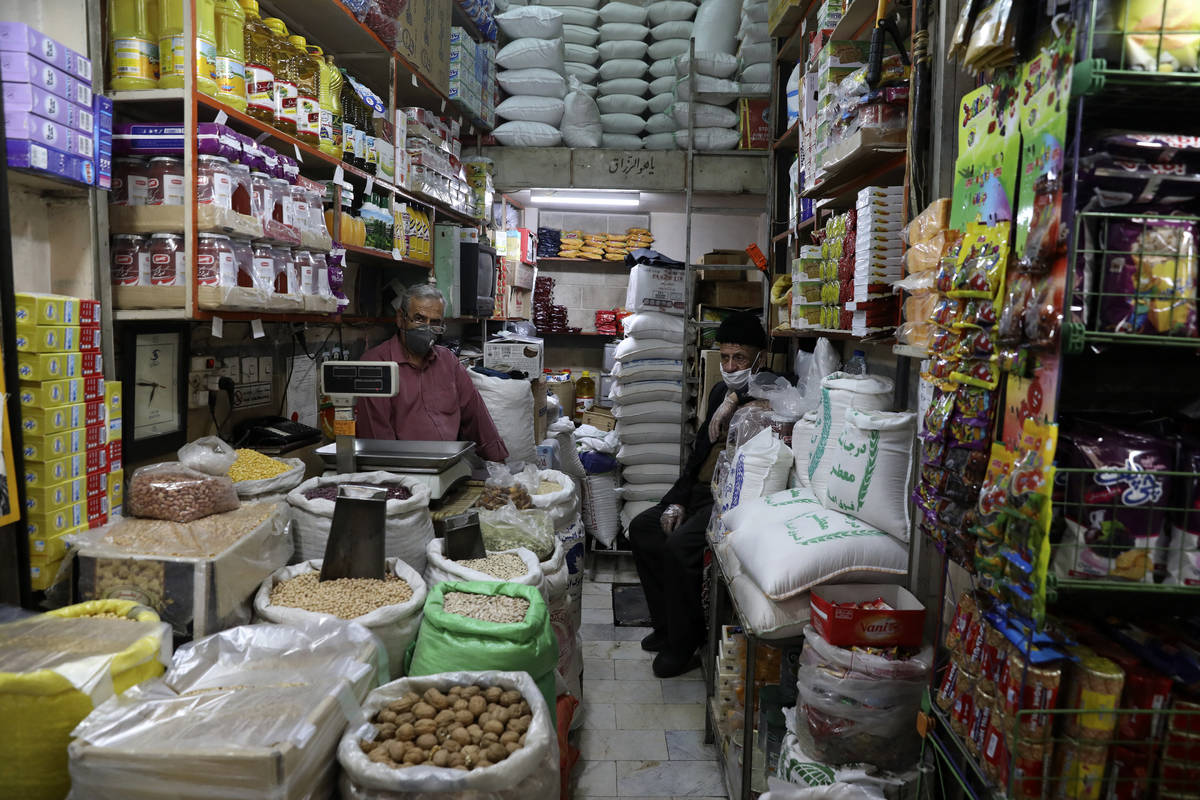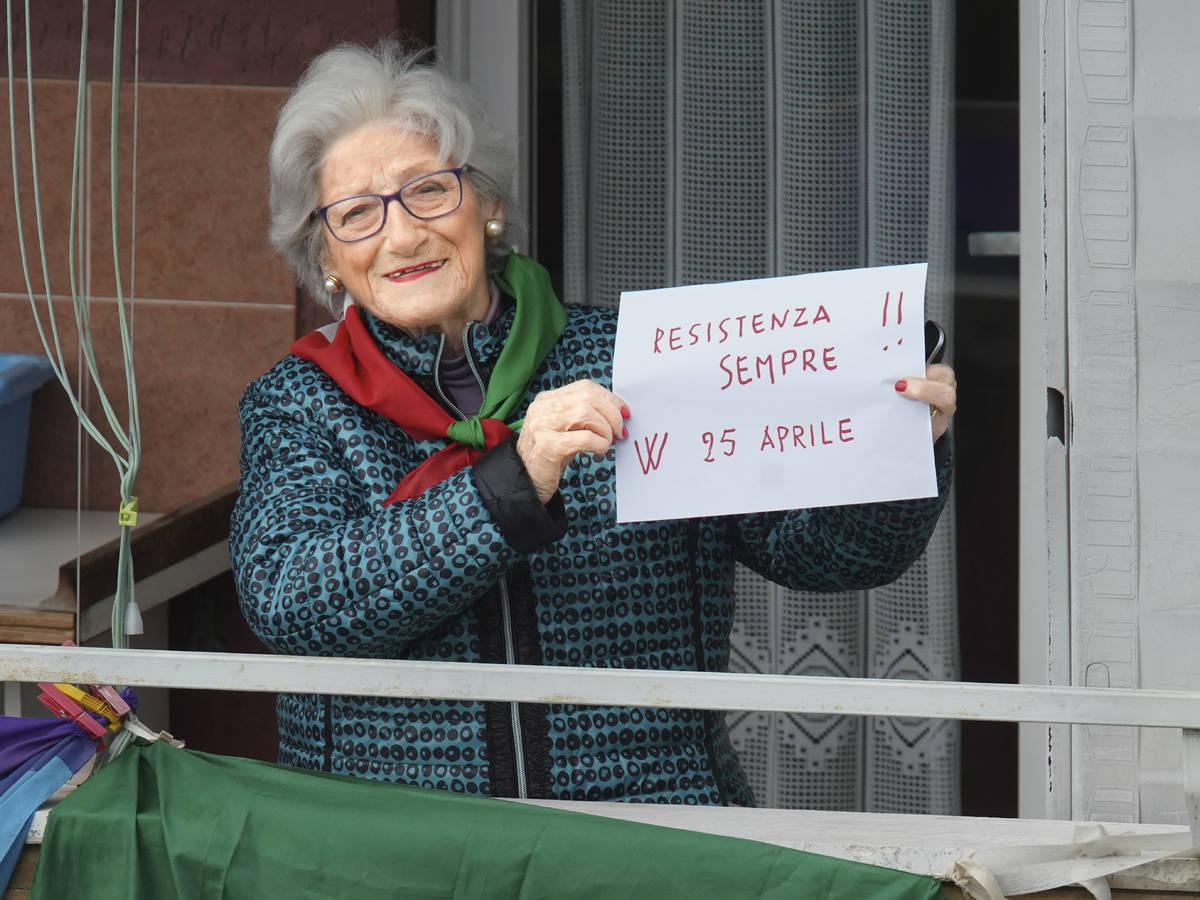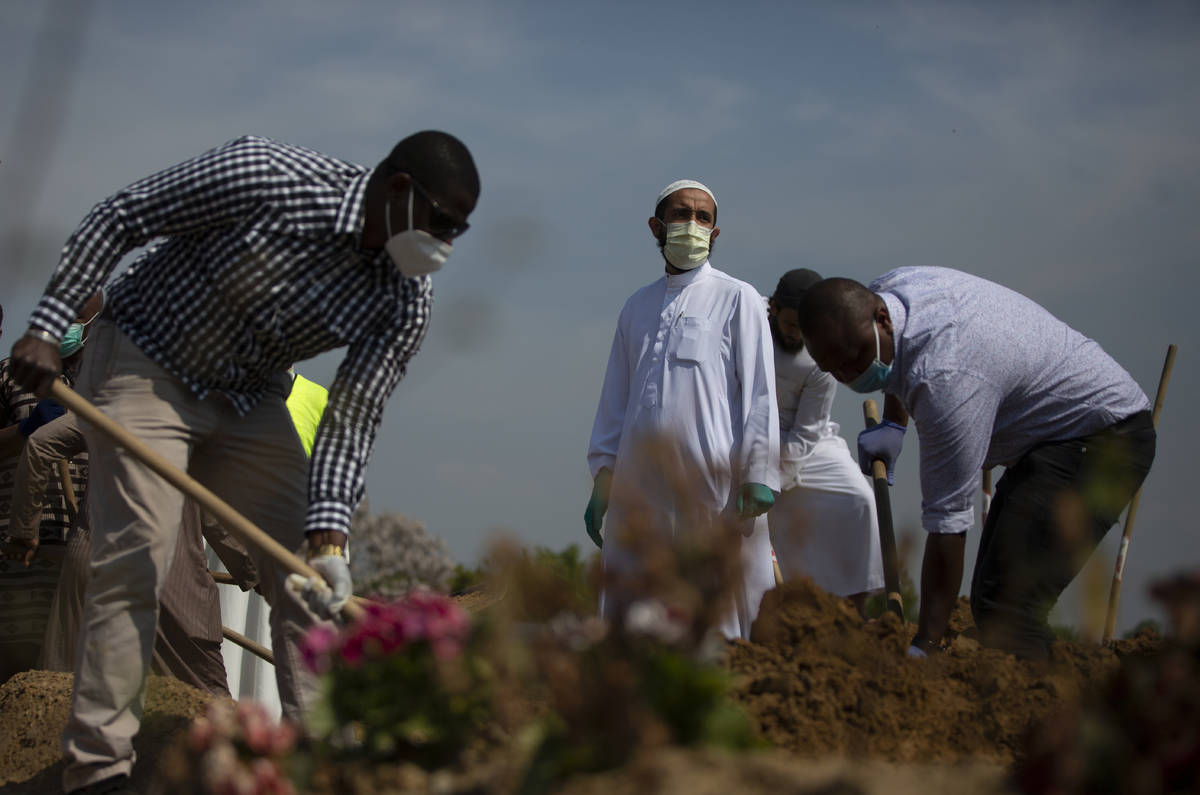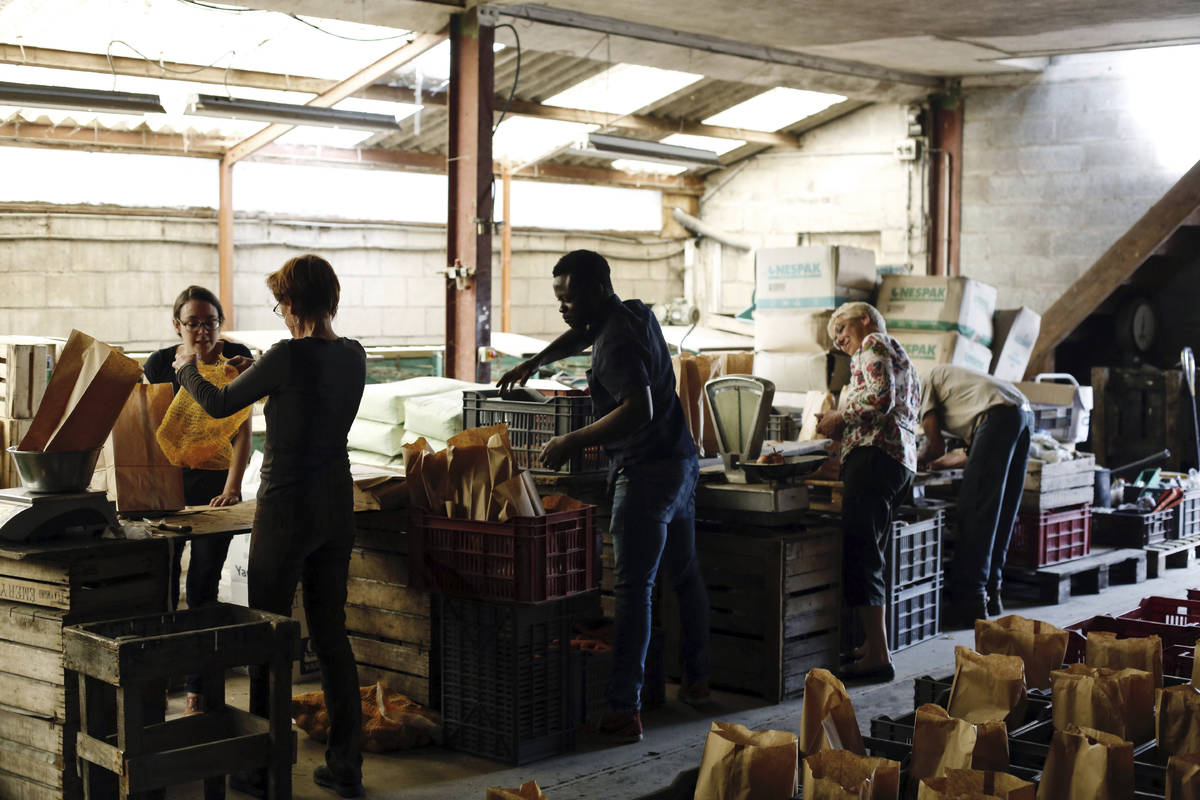Death toll tops 200K; WHO officials warn against ‘immunity passports’
There have been more than 200,000 confirmed deaths worldwide from coronavirus, Johns Hopkins University researchers said Saturday afternoon.
In the United States, 52,782 deaths have been recorded with 924,576 infections.
The World Health Organization is cautioning against the idea of “immunity passports.” It says there is currently no evidence that people who have recovered from COVID-19 and have antibodies are protected against a second infection.
The concept of “immunity passports” or “risk-free certificates” has been floated as a way of allowing people protected against reinfection to return to work.
But the Geneva-based U.N. health agency says in a scientific brief released Saturday that more research is needed. It says “at this point in the pandemic, there is not enough evidence about the effectiveness of antibody-mediated immunity to guarantee the accuracy of an ‘immunity passport’ or ‘risk-free certificate.’”
It argues that people who assume they are immune to reinfection may ignore public health advice, and such certificates could raise the risks of continued virus transmission.
WHO adds that tests for antibodies of the coronavirus also “need further validation to determine their accuracy and reliability.”
Iran deaths rise
Iran says it registered 76 more deaths in the previous 24 hours.
That puts the reported death toll from Covid-19 at 5,650 and confirmed cases at over 89,000. Iran is the country hardest hit by the virus in the Middle East.
Health Ministry spokesman Kianoush Jahanpour says more than 1,100 new confirmed cases were detected from the previous day.
Jahanpour added nearly 3,100 patients are in critical condition.
Italy taking free masks to nursing homes
Italy will start distributing free protective masks to nursing homes, many of which have been devastated by coronavirus infections and deaths.
Domenico Arcuri, the government’s commissioner for the pandemic, says doing so is a “gesture of solidarity and nearness and support to these places ever more at the epicenter of this great crisis.”
Arcuri says free masks also will be distributed to public officials, transport workers and police. Millions of Italians will be allowed to return to workplaces starting on May 4, when lockdown restrictions will be considerably eased.
Italy, with some 26,000 reported deaths, most of them of elderly persons, has Europe’s highest toll from COVID-19. In Lombardy, Italy’s most stricken region, prosecutors are investigating about two dozen homes, including one in Milan where some 200 residents died.
Pope appeals for prayers for funeral workers
Pope Francis has singled out funeral home workers for people’s prayers during the COVID-19 pandemic.
In Italy and some other countries, the deaths of people with coronavirus infections have meant funeral parlor workers must deal with the grief of families who aren’t allowed to hold public funerals as part of government-ordered measures to try to contain the pandemic.
Francis says, “What they do is so heavy and sad. They really feel the pain of this pandemic so close.”
The pope made the appeal for prayers during morning Mass on Saturday in the Vatican City hotel where he resides.
In past remarks, the pope has cited others for doing what he called heroic work during the pandemic, including doctors, nurses, supermarket clerks and transport workers.
The Vatican has its own lockdown, barring the public from its museums and religious ceremonies. It has reported nine coronavirus cases among the residents or employees of the walled, independent Vatican City State.
UK warns not to ignore medical needs
British medical authorities are urging people not to ignore symptoms of conditions other than the coronavirus. The move comes amid fears that cancer and other illnesses are going untreated as the health system focuses on fighting the pandemic.
Public Health England says visits to hospital emergency departments have fallen by almost 50% in April from the same month last year. The charity Cancer Research UK has estimated that 2,250 new cases of the disease could be going undetected each week, partly because people are reluctant to go to hospitals for fear of catching the virus or overburdening the system.
The National Health Service is launching a public information campaign urging people to seek urgent help if needed and to continue to attend services such as cancer screening and maternity appointments. It says the system still has capacity to treat other conditions.
NHS chief executive Simon Stevens said “ignoring problems can have serious consequences — now or in the future.”
India easing lockdown
India announces easing of a stringent lockdown for 1.3 billion people by opening neighborhood and standalone shops with restrictions such as 50% of workers with face masks and social distancing.
A home ministry statement issued late Friday says that shops in single and multi-brand malls would not be allowed to open anywhere in the country.
The relaxation also would not be applicable in hundreds of hotspots and containment zones across the country. India has so far reported more than 24,500 positive coronavirus cases and 775 deaths. The worst-hit states are Maharashtra with 6,817 positive cases, Gujarat with 3,815 cases, New Delhi 2,514 and Rajasthan 2,034 cases.
India imposed a lockdown for its 1.3 billion people on March 25 and it is due to end on May 3. Last week, the government allowed resumption of manufacturing and farming activities in rural areas as millions of daily wage-earners were left without work.
The Home Ministry says the rise in number of positive cases in India is linear, not exponential.
S. Korea cases continue decline
South Korea has reported 10 new cases of the coronavirus, the eighth day in a row its daily increase was below 20, as its outbreak slows amid tightened border controls and waning infections in the worst-hit city of Daegu.
The country reported Saturday no new deaths for the second straight day. The figures released from South Korea’s Centers for Disease Control and Prevention on Saturday brought national totals to 10,718 cases and 240 deaths.
While a slowing caseload has allowed South Korea to relax its social distancing guidelines over the past week, Prime Minister Chung Sye-kyun raised concern over possible transmissions by “quiet spreaders” and instructed officials to conduct antibody tests in Daegu and nearby towns.
Chung also called for stronger financial tools to ease the epidemic’s economic shock, which has caused severe cash flow problems for airlines while also hurting major exporters, such as carmakers and shipbuilders.
The government is looking to create a 40 trillion won ($32 billion) fund through bonds issued by state-run banks to protect jobs in key industries, but the plan needs parliamentary approval.
South Korea’s economy shrank 1.4% during the first three months of the year, the worst contraction since late-2008, as the pandemic hit both domestic consumption and exports.
No new deaths in China
For the 10th straight day, China reported no new deaths from the coronavirus.
Twelve new cases were reported on Saturday, 11 of them brought from overseas and one local transmission in the northeastern province of Heilongjiang bordering on Russia, according to the National Health Commission.
Just 838 people remain hospitalized with COVID-19 while another 1,000 people are undergoing isolation and monitoring for being either suspected cases or having tested positive for the virus while showing no symptoms.
China, widely believed to be the source of the global pandemic, has reported a total of 4,632 deaths among 82,816 cases.



